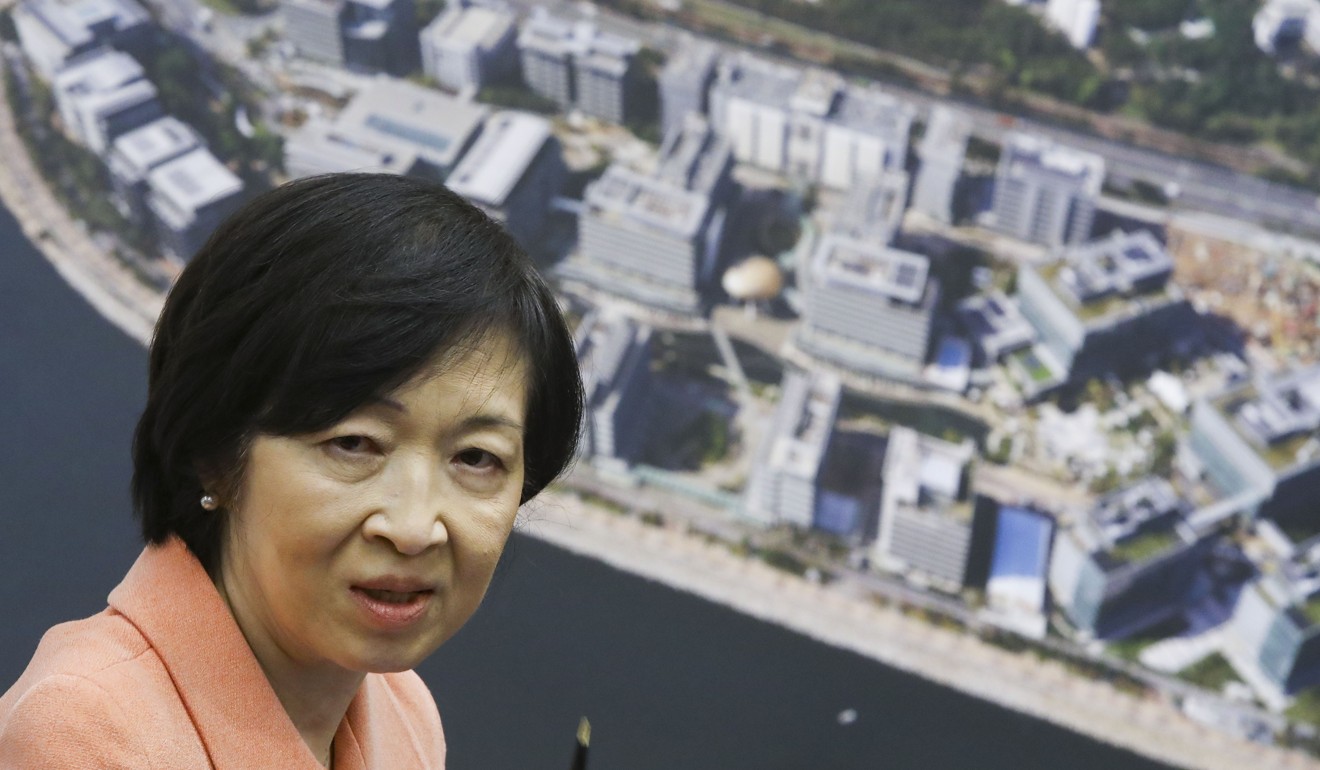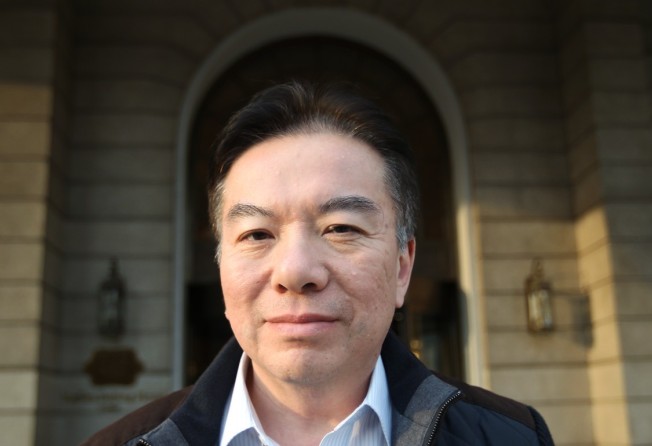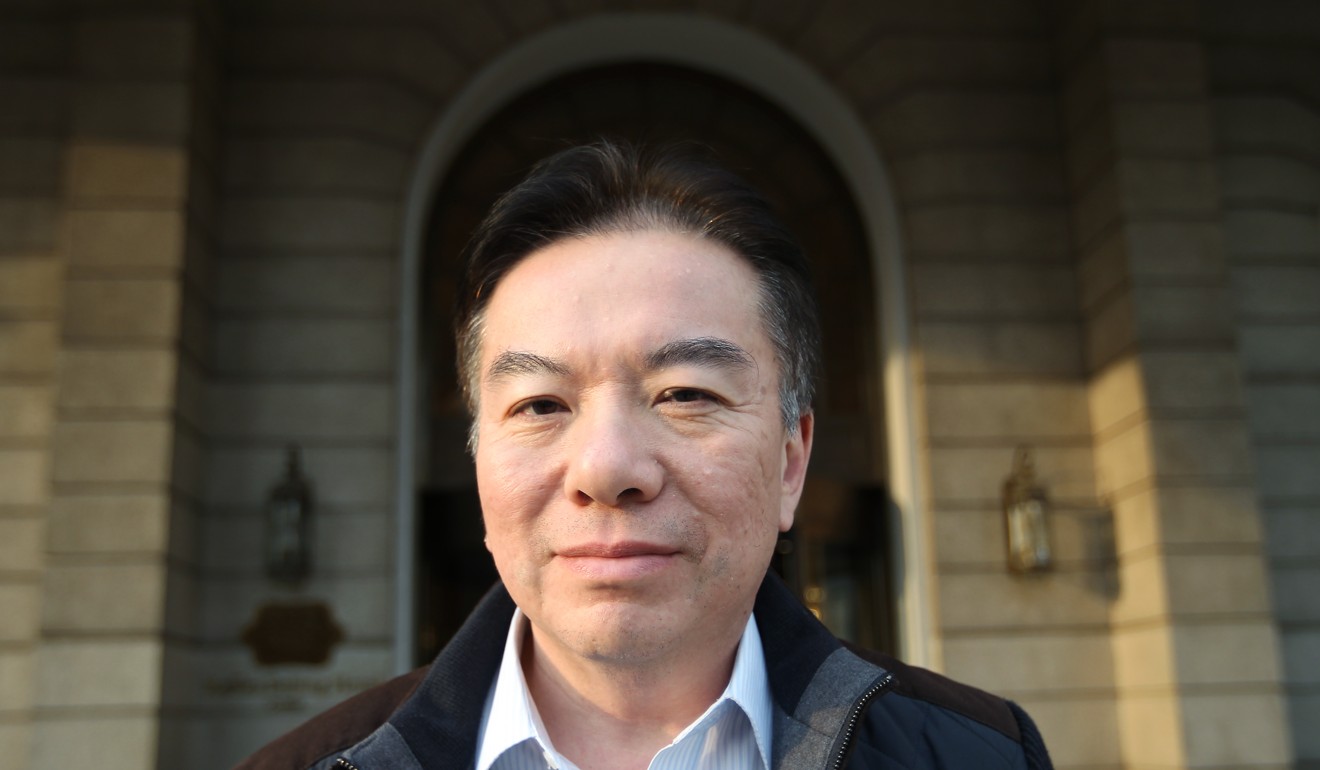
New faces, new expectations, but will Hongkongers in China’s legislature deliver on conflicting demands?
The December 19 election for 36 Hongkongers to join the National People’s Congress will mark a changing of the guard, and a more challenging road ahead to manage different needs

Thirty-six Hongkongers will join China’s legislature for five years after a local vote next month, marking a changing of the guard as they seek to represent the city’s interests in its vital but oftentimes tense relationship with Beijing.
Critics have often dismissed the Hong Kong deputies in the National People’s Congress (NPC), seeing them as pro-establishment types jostling to rub shoulders with the party elite in Beijing, while the deputies, who are not paid, insist they do not just rubber stamp policies.
The NPC, the highest organ of state power, has the mandate to amend the constitution and oversee its enforcement. It also enacts and amends laws, elects and appoints members to central state organs and directs policy on key state issues.
The five-yearly election, taking place on December 19, will see a third of the 36 current Hong Kong deputies unlikely to seek re-election. Many have served for more than a decade.
They include two women known as political heavyweights: Rita Fan Hsu Lai-tai, Hong Kong’s sole representative on the NPC Standing Committee (NPCSC), its top legislative body, and Maria Tam Wai-chu, convenor of the Hong Kong delegation to the NPC.
Another two stepping down are Fanny Law Fan Chiu-fun and Laura Cha Shih May-lung, both members of Chief Executive Carrie Lam Cheng Yuet-ngor’s Executive Council.

They include Raymond Tam Chi-yuen, former Secretary for Constitutional and Mainland Affairs; Tam Yiu-chung, a former chairman of Hong Kong’s largest pro-Beijing party, the Democratic Alliance for the Betterment and Progress of Hong Kong;lawyer and opponent of the 2014 Occupy Central movement Maggie Chan Man-ki; former Law Society chairman Ambrose Lam San-keung and Fan’s son Andrew Fan Chun-wah.
There are 1,989 electors, most of whom are pro-Beijing with about 300 pan-democrats, including Benny Tai Yiu-ting, the co-founder of the 2014 Occupy Central movement, which led to a 79-day occupation of major roads in the name of civil disobedience for greater democracy.
Pan-democrats previously said they might boycott this year’s election, as their attempts in past polls to gain seats had fallen flat.
But beyond a changing of the guard, this election is especially significant for other reasons.
Hong Kong society is more politically polarised than it was at the last election in 2012, with Occupy driving both a rise in calls for self-determination, and conversely, the vilification of localists by pro-establishment supporters.
These divisive positions have resulted in gridlock in the Legislative Council and clashes on university campuses between pro-independence activists and mainland students.
The 36 delegates will have to grapple with two sets of expectations that are more likely than not to be in conflict with each other – the demand that they represent the full spectrum of views from Hong Kong, and Beijing’s expectation that they articulate the central government’s position to Hongkongers and get them to accept political realities.
They will also need to strike a new relationship with Li Zhanshu, formerly director of the Communist Party’s Central Committee General Office and effectively Xi’s chief of staff, who is tipped to take over as NPC chairman from Zhang Dejiang next March at China’s “two sessions” or “lianghui”.
This is the annual meeting of the NPC and the Chinese People’s Political Consultative Conference (CPPCC), which is the top political advisory body.
Hopefuls say they will rise up to the challenge
Hopefuls in the race who spoke to the Post have pledged to advance Hong Kong’s economic and social development and represent the city’s interests, including safeguarding the city’s preciously-held “one country, two systems” principle of governance, under which it is given a high degree of autonomy from the mainland.
Michael Tien Puk-sun, who is seeking re-election for the third time, said: “We need to strike a balance between representing the ‘one country’ [China] … and representing Hong Kong in relaying the people’s views,” he explained.
But the space to represent dissenting views has shrunk, with Beijing issuing new rules earlier this year that Hong Kong deputies to the NPC must pledge allegiance to both China and Hong Kong, and declare that they will uphold both the Chinese constitution and Hong Kong’s mini-constitution, the Basic Law.
Earlier this week, NPC vice-chairman Wang Chen reiterated the rules, and stressed that Beijing would not tolerate any act to separate Hong Kong from the nation.
In November last year, the NPCSC, led by Zhang, who is the Communist Party’s third-ranking official, issued an interpretation of Hong Kong’s mini-constitution, the Basic Law, and made improper oath-taking by the city’s public office bearers punishable by instant disqualification.
This came a month after two pro-independence lawmakers performed anti-China antics during an oath-taking ceremony. A Hong Kong court later ruled that the pair, as well as four other pro-democracy lawmakers, would lose their seats.
Additionally, under new legislation recently approved by the NPCSC, anyone who maliciously modifies the lyrics, or plays or sings the anthem in a distorted or disrespectful way in public can be detained for up to 15 days or imprisoned for three years under the mainland criminal code.
This law, seen as targeting Hong Kong football fans who boo the anthem at soccer matches, has since been inserted into Annexe III of the Basic Law, requiring Hong Kong to implement it by way of promulgation or local legislation.
Both Tien and David Wong Yau-kar, who is seeking his second term,dismissed criticism that they and the other deputies had not done enough to “stop Beijing from undermining Hong Kong’s autonomy” with those contentious decisions.

“I think the interpretation was necessary,” Wong said, referring to the oath-taking saga.
If the NPCSC considered making another potentially contentious decision on Hong Kong, Wong promised to “reflect Hong Kong people’s views and make a personal judgment” on how to handle it.
Helping Hongkongers and focusing on the future
Deputies to the NPC are required to attend study tours on the mainland and submit policy recommendations for Hong Kong. Mainland authorities are required to either adopt the recommendations or explain why not.
Tien said he would be focusing on the city’s economic development if he was re-elected
“We need to advise mainland authorities on how Hong Kong is to take part in the country’s development, especially in the Belt and Road Initiative and the Greater Bay Area project,” he said.
The “Belt and Road” Initiative is a strategy to open up trade along land and sea corridors spanning more than 65 countries, while the “Greater Bay Area” scheme aims to link Hong Kong, Macau and nine mainland cities into an integrated economic powerhouse.
He would also continue to urge Beijing to introduce incometax reforms to encourage Hongkongers to work on the mainland, especially in cities in Guangdong province such as Shenzhen.
Wong agreed that the economy would be the area of focus for Hong Kong deputies in the coming years.
“Hong Kong, which is governed under the ‘one country, two systems’ principle, will play a bigger part in the nation’s economy,” Wong said.
On what the current crop of deputies had achieved, Wong said that they had raised Hongkongers’ concerns a few years ago of mainlanders abusing a multi-entry system by coming to the city in droves and purchasing daily necessities. Their voice “could be seen” as a reason for why mainland authorities introduced a measure in 2015 to limit Shenzhen permanent residents to just one visit a week to Hong Kong, Wong added.
“For issues related to Hong Kong, it’s natural for us to speak up,” he said.
Fanny Law, who said she would not seek re-election after 10 years of service to “make way for others”, said that apart from having some of her policy recommendations on environmental protection and anti-corruption issues adopted by Beijing, she was most gratified about “helping ordinary Hongkongers faced with problems on the mainland”.
Former legislator Tam Yiu-chung, who is seeking to be elected for the first time, said he wanted “a deeper understanding of the nation”.
He is widely tipped to be elected and to succeed Rita Fan as a member of the NPCSC in March. He has been a delegate to the CPPCC for 15 years.
Beijing’s expectations of new deputies
Tian Feilong, associate professor at the Beihang University’s law school in Beijing, said he believed Beijing wanted the new deputies to be a “bridge connecting the central government to the hearts of Hongkongers” and to make their views on “one country, two systems” known.
The criteria to be a deputy was that one had to love China and Hong Kong, he said, adding: “I think the direction for the NPC to go in the future, is that there can be more deputies with a political middle ground.”
Asked if this meant that if the outspoken Michael Tien, stood a chance to win re-election, Tian said Beijing was willing to accept constructive criticism as long as critics were not merely trying to “put up a show” to gain credit.
Tien was the only deputy to seek a response from Beijing after five booksellers linked to the Hong Kong store that sold books critical of the Communist Party vanished one after another last year.
Lau Siu-kai, vice-chairman of Beijing’s top think tank on Hong Kong affairs, said that with Li, who was elevated to the Communist Party’s Politburo Standing Committee last month, likely to take over from Zhang to lead the NPC, the course that President Xi Jinping set for Hong Kong’s governance would be closely followed. Hong Kong deputies would be expected to play a role.
At last month’s 19th Party Congress, Xi called for the melding of Beijing’s “comprehensive jurisdiction” over the city with its high degree of autonomy in a natural or “organic” way.
“Beijing has always expected the deputies to speak up for the central government, but as Xi emphasised ‘ruling the country according to the law’, NPC deputies around the country will be playing a bigger role,” Lau said.
He added: “As the implementation of ‘one country, two systems’ was included as one of Xi’s 14 principles of [governance], local deputies will need to promote the accurate understanding of the principle and the Basic Law, to counter the opposition camp’s perspective of the city as an independent or semi-independent entity.”
“